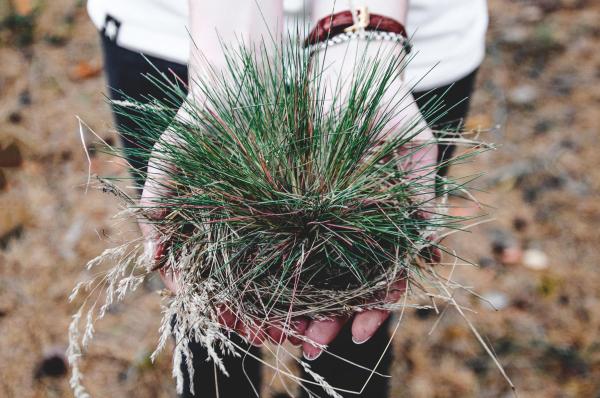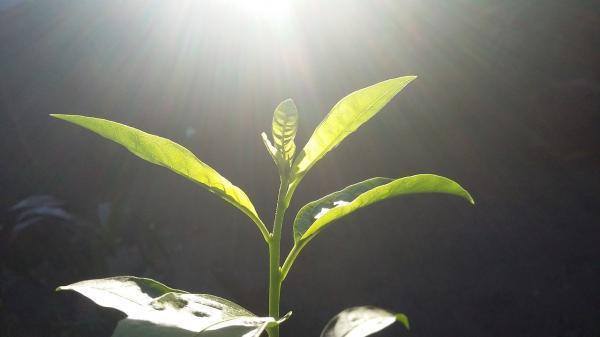Do Plants Know When They Are Being Eaten?


The intricate relationship between plants and animals has fascinated scientists for centuries. Despite the fact that animals possess a diverse range of senses and mechanisms that detect danger, such as predators, whether plants are capable of similar awareness has remained open. Do plants experience pain? Are they capable of suffering when herbivores consume their leaves and fruits, or when humans uproot them or cut their branches and trunks?
In this article from thedailyECO, we delve into the intriguing question of whether plants know when they are being eaten and delve into the controversial topic of whether they experience pain.
Are plants living beings?
Yes, plants are indeed living beings. They are classified as living organisms within the biological kingdom of Plantae.
Plants are characterized by their ability to carry out photosynthesis, a process that converts light energy from the sun into chemical energy. This energy is then used to produce food in the form of carbohydrates, which is essential for the plant's growth and survival.
Additionally, plants have complex cellular structures and organ systems that enable them to perform essential life processes such as respiration, metabolism, and adaptation to their environment.
Plants also play a critical role in ecosystems, serving as primary producers that provide the foundation for food chains and nutrient cycles. They are responsible for capturing carbon dioxide from the atmosphere and releasing oxygen, which is vital for the survival of many other living organisms, including animals and humans.
Furthermore, plants are capable of responding to various stimuli from their environment, including changes in temperature, light, humidity, and the presence of other organisms. They have evolved a range of mechanisms to adapt to their surroundings and protect themselves from herbivores, pathogens, and other threats.
Not only that, but plants possess the ability to sense the presence of other organisms in their surroundings. While plants lack traditional sensory organs like eyes or ears, they have developed various mechanisms to detect and respond to their environment. In fact, they can interact with these organisms directly or indirectly through physical contact or chemical interactions.
Make sure not to overlook this other article, where we explore the main distinctions between animal and plant cells.

Do plants have a nervous system?
No, plants do not have a central nervous system like animals do. While animals have a complex network of neurons and specialized organs like the brain and spinal cord that coordinate their responses to stimuli, plants lack these structures.
Instead, plants have a decentralized system of communication and response that relies on various signaling pathways. They use electrical and chemical signals to transmit information within their tissues and coordinate their responses to environmental stimuli. For example, when a plant is subjected to physical damage, electrical signals can propagate through its cells to trigger defensive responses in other parts of the plant.
Plants also rely on a variety of chemical signals, including hormones and volatile organic compounds (VOCs), to communicate with neighboring plants and organisms. These chemical signals can regulate growth, development, and responses to stress or environmental cues.
In response to these stimuli, plants trigger different physiological and biochemical responses, mediated by the presence of specific chemical compounds and plant hormones. These responses allow plants to adapt and survive in challenging conditions.
If you find the topic of plant behavior intriguing, you may want to check out our other article, where we delve into whether plants can move.
Do plants feel pain?
As mentioned before, plants differ from animals in that they lack pain receptors, nerves, and a centralized brain, which means they do not experience pain in the same manner. However, this does not imply that plants lack sophisticated mechanisms to perceive and respond to physical stimuli and damage. While some plants, like carnivorous species with their visible sensory abilities, exhibit immediate movements in response to touch, others possess remarkable cellular-level sensory capabilities.
Recent research suggests that plants have complex communication systems and can respond to stimuli such as herbivory or environmental stress, the scientific community is still exploring and discussing the concept of plants experiencing pain.
Without doubt, plants demonstrate extraordinary adaptability to various environmental factors, including their responses to sunlight, gravity, wind, and even minor insect bites. Their evolutionary successes and failures are driven by the fundamental principles of life and survival, rather than suffering. However, while it is true that plants possess impressive sensory and defensive mechanisms, it is important to recognize that their experiences differ fundamentally from the subjective experiences of pain and suffering known in the animal kingdom.

Do plants know when they are being eaten?
While plants lack the ability to experience pain or possess a consciousness like animals do, they have developed sophisticated mechanisms to perceive and respond to being eaten or attacked by herbivores. Plants have evolved various defense mechanisms to deter herbivores and minimize damage to their tissues.
When a plant is being eaten, it can detect the physical damage through specialized receptors and biochemical signaling pathways. For example, upon herbivory, plants may release specific chemical compounds or volatile organic compounds (VOCs) that serve as warning signals. These signals can alert neighboring plants to activate their own defense mechanisms, such as producing toxins or increasing the production of defensive compounds.
Additionally, plants can modify their growth patterns in response to being eaten. They may redirect resources to repair damaged tissues or prioritize the growth of undamaged parts. Some plants even produce physical structures, such as thorns or toughened leaves, as a deterrent against herbivory.
It's important to note that while plants have these defense mechanisms, they do not possess a conscious awareness of being eaten or actively "know" in the same way animals do. Their responses to being eaten are a result of evolutionary adaptations that promote survival and reproductive success.
You might also be interested in this other article, where we answer the question of do bees die after stinging someone?
If you want to read similar articles to Do Plants Know When They Are Being Eaten?, we recommend you visit our Facts about nature category.
- Karban, R. (2015). Plant Sensing and Communication. University of Chicago Press.
- Agrawal, A. A., Hastings, A. P., Johnson, M. T. J., Maron, J. L., & Salminen, J. P. (2012). Insect herbivores drive real-time ecological and evolutionary change in plant populations. Science, 338(6103), 113-116.
- Wurst, S., & Van Moorsel, S. J. (2019). Plant Defense against Herbivory: Chemical Aspects. In Reference Module in Life Sciences. Elsevier.
- Heil, M. (2008). Indirect defence via tritrophic interactions. New Phytologist, 178(1), 41-61.







